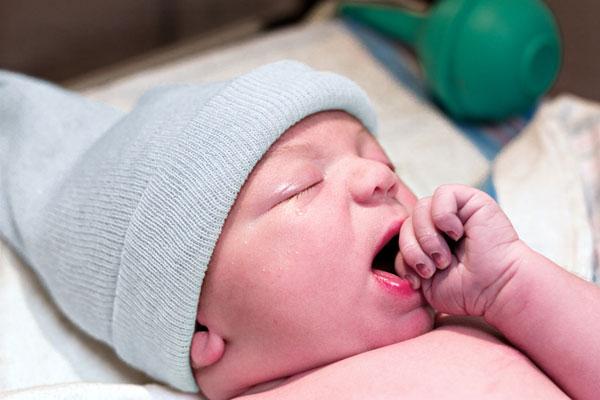New Moms' OCD Is Common, Study Suggests

New moms who repeatedly check their babies' breathing, or worry about germs in their bottles may be reassured to know that these thoughts and behaviors are common, a new study suggests.
The results show that about 11 percent of mothers experience temporary symptoms of obsessive compulsive disorder (OCD) during the months after giving birth. That's much higher than the 2 to 3 percent of people in the general population who experience OCD symptoms, the researchers said.
Symptoms of OCD include repeated and unwanted thoughts (obsessions), as well as ritualistic behaviors that attempt to allay those thoughts (compulsions). For instance, a mother may repeatedly fret about germs and sterilize her baby's bottles, the researchers said. Or she may worry that the baby is not safe in his or her crib, and repeatedly check to see whether it's latched properly.
The extent to which these thoughts and behaviors are "normal," or whether they "cross the line," is not entirely clear yet, said study researcher Dr. Dana Gossett, chief and assistant professor of obstetrics and gynecology at Northwestern University Feinberg School of Medicine in Chicago.
It is appropriate for a mother to be concerned about the health and safety of her baby, Gossett said. In fact, Gossett experienced obsessive thoughts herself after giving birth to her first child, worrying that she would fall down the stairs with her infant.
However, if those thoughts and behaviors prove distressing to the mother, and interfere with her ability to care for herself and her baby, these symptoms become a concern, Gossett said.
For example, if a mother worries so much about her baby during the night that she doesn't sleep herself, or if she checks the child's car seat so many times before driving that she doesn't leave the house, "that’s crossing the line into pathology," Gossett said.
Sign up for the Live Science daily newsletter now
Get the world’s most fascinating discoveries delivered straight to your inbox.
Previous studies have suggested that women experience OCD symptoms during the postpartum period. However, most of these studies asked women to recall what their thoughts and behaviors were during the months after they gave birth, which they may not remember correctly. The new study followed women forward in time, from the time when they gave birth at the hospital until the babies were six months old, asking the new moms to fill out a survey that assessed OCD symptoms.
Two weeks after giving birth, 51 out of 461 women in the study reported experiencing OCD symptoms. After six months (when fewer women answered the survey), 35 out of 329 women reported symptoms. About half of the women who reported symptoms at two weeks had improved by six months. But some women had just begun to experience OCD symptoms at six months, Gossett said.
Stress is known to trigger OCD, so it's possible the stress of pregnancy and caring for a baby may predispose women to the condition, the researchers said. Hormone levels before and after pregnancy, and changes in the brain's activity following childbirth, may also contribute to the symptoms.
The researchers note that women in the study were not interviewed by a professional psychiatrist who could assess their symptoms. It's possible some women had experienced OCD before childbirth, but were not aware they had the condition, the researchers said. (About 0.4 percent of the study participants reported being diagnosed with OCD by a doctor before they gave birth, but since this was self-reported, it could be an underestimate.)
The study involved mostly women who had a college degree and earned more than $100,000 a year, so the findings may not apply to women from other socioeconomic groups, the researchers said.
The study is published in the March/April issue of The Journal of Reproductive Medicine.
Pass it on: After childbirth, it's common for women to have symptoms of obsessive compulsive disorder.
This story was provided by MyHealthNewsDaily, a sister site to LiveScience. Follow Rachael Rettner on Twitter @RachaelRettner, or MyHealthNewsDaily @MyHealth_MHND. We're also on Facebook & Google+.

Rachael is a Live Science contributor, and was a former channel editor and senior writer for Live Science between 2010 and 2022. She has a master's degree in journalism from New York University's Science, Health and Environmental Reporting Program. She also holds a B.S. in molecular biology and an M.S. in biology from the University of California, San Diego. Her work has appeared in Scienceline, The Washington Post and Scientific American.









